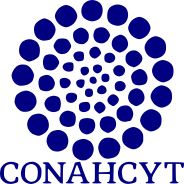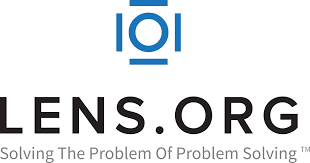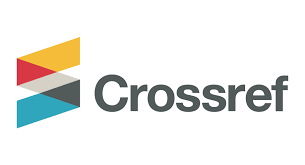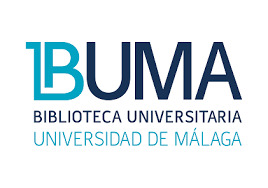Normativity
Process for identification of and dealing with allegations of research misconduct
The integrity of our journal rests on the professionalism of its authors, referees, and editors. Alleged cases of unethical conduct will be investigated vigorously by the Editor in Chief of the journal.
It is the sole responsibility of the authors to ensure that ALL co-authors are recorded in the metadata. POLIBOTANICA will not modify or allow them to register in any other part of the process.
Plagiarism
Under no circumstances plagiarism will be allowed in POLIBOTANICA: either as a redundant publication (i.e., that two or more documents, without complete crossed references share the same data hypotheses, discussion points or conclusions) or as direct plagiarism (absence of references, use of third parties ideas, published or unpublished).
Specialized software to detect plagiarism is used. The texts received will undergo a revision before being sent to editorial and academic review, they will be rejected if the percentage of similarity with other text published or available on the internet is above 20%.
If possible plagiarism of a published text is suspected or reported, the procedure to follow and the consequences of this action will be determined according to what COPE summarizes in the following flowchart.
The consequences range from a calling to attention if it is the case of a mistake or misunderstanding to the rejection of the article and the accusation before the authors’ institutions.
Retractions
At any time, the main author can withdraw from publishing his article in POLIBOTÁNICA, to do so he will send a letter explaining his reasons to the editor-in-chief.
Post-release corrections
In the event that an error is detected, said publication will be modified by inserting a legend that refers to the error in question with the annotation of the detection of the error, indicating the dates of online publication and the date of the correction.
Attribution and citation practice
Papers published in POLIBOTANICA should include citations to previously published papers that are directly relevant to the results being presented. This requirement is especially important when new ideas or results are being presented. Deliberate refusal to credit or cite prior or corroborating results, while not regarded technically as constituting plagiarism, represents a comparable breach of professional ethics, and can result in summary rejection of a manuscript.
Conflicts of interest
All articles submitted to POLIBOTÁNICA for publication are reviewed by at least a couple of referees. that assumes responsibility for evaluating the scientific veracity, clarity, and significance of the results presented. For such a system to function effectively the referees must be free of any conflicts of interest that might influence the content or the promptness of the review. When a paper is submitted, authors may identify individuals who they believe are conflicted and should not serve as referees. Likewise, individuals who are asked to review a paper should identify any potential conflicts of interest, so the editor can determine whether these are substantive enough to disqualify that reviewer. In most instances, an individual working at the same institution as one of the co-authors is ineligible to referee the paper. Editors must also guard against conflicts of interest, and by journal policy they are required to disqualify themselves whenever a real or perceived conflict is present.
Confidentiality guidelines
Except in cases where referees waive their anonymity with the concurrence of the editor, all POLIBOTANICA peer reviews are conducted under conditions of strict confidentiality. The journal and its editors will not reveal the identity of referees or the contents of peer review correspondence to individuals outside of the respective peer review process for a minimum period of 50 years. Referees are also bound by strict confidentiality; neither the manuscripts nor the contents of referee correspondence may be shared with other parties without written permission from the editor.
Strictly speaking, authors are not bound by similar confidentiality requirements (for example they may choose to consult with co-authors and colleagues when revising a paper in response to a referee report), but public dissemination of the contents of referee reports and editorial correspondence is inappropriate. Any author who does so forfeits their rights to confidentiality protection by the journal.
Code of ethic
POLIBOTANICA adheres to the code of ethic for the action and performance of personnel involved in the publication process of this journal (editor, editorial committee, authors and reviewers) established by the Committee on Publication Ethics (COPE) and available at: https://publicationethics.org/resources/code-conduct
Authors ethics
Authors must adhere to the highest standards regarding publication ethics. Cases of ethical misconduct will be addressed in accordance with COPE guidelines. The editor reserves the right to conduct plagiarism checks at any time after receiving the manuscript.
By submitting a manuscript, the corresponding author agrees that:
1) The work is original, unpublished, free from plagiarism, and not under consideration for publication elsewhere.
2) All authors have consented to the publication in the POLIBOTANICA journal.
3) All significant contributors have been properly acknowledged and included as co-authors.
4) All addresses and institutional affiliations are accurate and complete.
5) All national laws related to research have been adhered to.
6) Sources of funding and conflicts of interest have been appropriately disclosed.
7) Necessary authorization has been obtained from employers, individuals, or entities holding intellectual property or copyright, as well as financial sources, to publish all parts of the manuscript.
8) The author is responsible for the complete registration of all authors with their full details, including names, email addresses, and institutions of origin.
Any published article subsequently found not to comply with these criteria may be retracted or, at the sole discretion of the journal, a correction may be published.



















